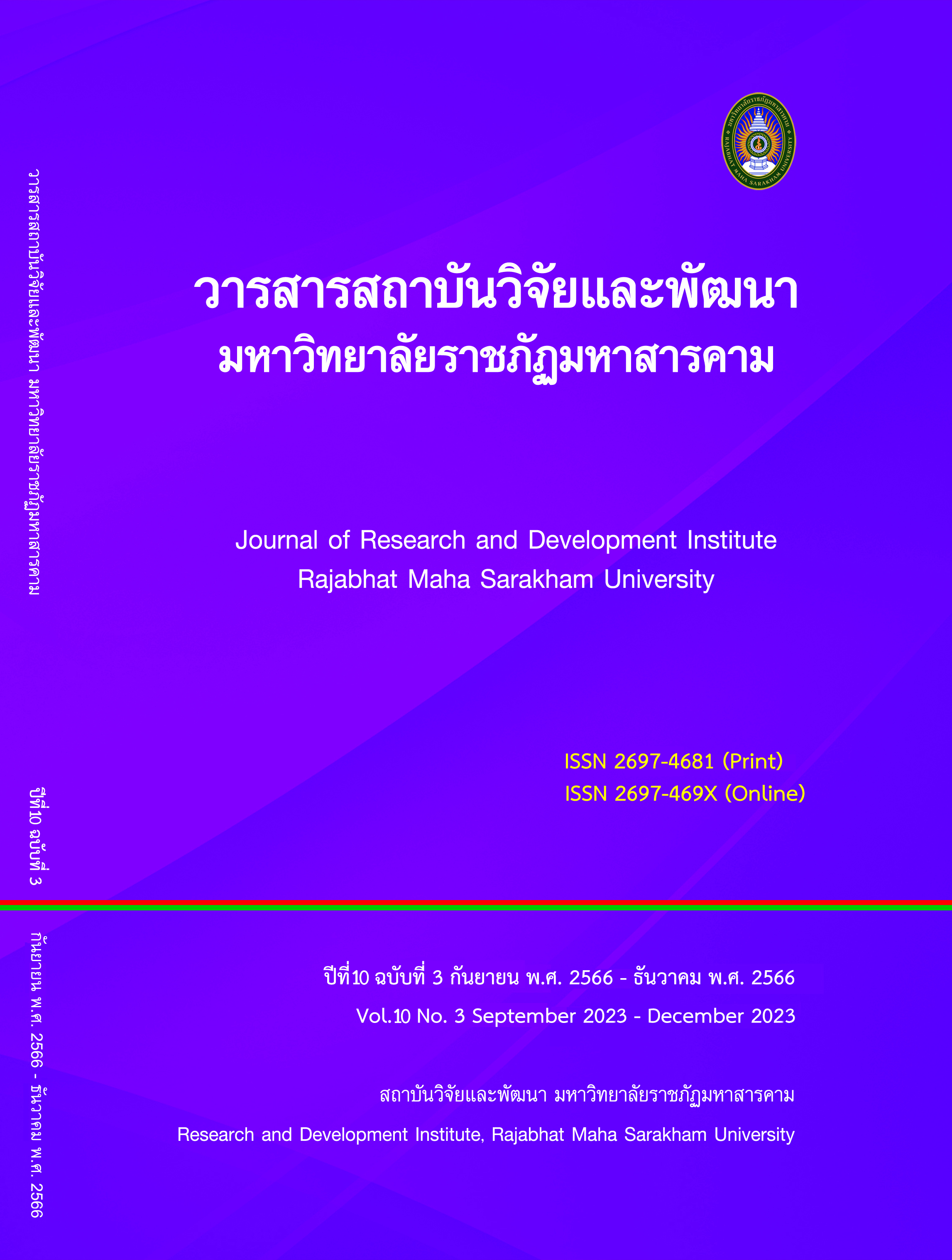THE EFFECTS OF ACTIVE LEARNING USING COOPERATIVE LEARNING (STAD) AMIDST THE COVID -19 PANDEMIC ON LEARNING ACHIEVEMENT AND SATISFACTION TOWARDS HEALTH EDUCATION LEARNING IN DRUG ISSUE OF GRADE 5 STUDENTS
Keywords:
Active learning, Co-operative learning, STAD techniqueAbstract
The purpose of this research were 1) to study the effects of active learning using cooperative learning (STAD) on learning achievement amidst the Covid-19 pandemic 2) to study satisfaction. The sample of the study was the 43 in grade 5 students at Sanambin school, Khon Kaen Province which were chosen by Purposive sampling. This research is quasi-experimental research with one-group pretest- posttest design. Research instruments included 8 lesson plan, achievement test and satisfaction questionnaire. The data was analyzed by using statistics including mean, standard deviation and t-test dependent.
The research findings were as follows: the post-test score of most students was higher than the pre-test score after using STAD cooperative technique in active learning class and was significantly higher than before at the .05. Moreover, the students had satisfaction showed there in highest level.
Research conclusions: Students had higher academic achievement after they learned. They were satisfied with the learning management at the highest level. Students have practice and work in group with their friends, creative thinking, problem solving skill and good interactions with friends. They enjoy the class, have fun, and eager to learn more.
References
Akademika, K. (2020). Students Teams – Achievement Division (STAD) for Enhancing Speaking Performance and Teamwork Satisfaction in
English as a Second Language (ESL) Classrooms. Retrieved November2,2021,from http://journalarticle.ukm.my/17318/1/42148-140512-1-PB.pdf
Arporn, J. (2010). Principles of teaching. 5th edition. Bangkok: Odeon Store.
Dita, H. (2002). The Application of the Studen Teams Achievement
Division (STAD) Cooperative Learning Model on the Ability to Understand the Concept of Elementary School Students. RetrievedNovember12,2021,from http://proceedings2.upi.edu/index.php/icee/article/view/1984/1831 .
Juthamas, P. (2018). Development of proactive learning management through smart classrooms For students Grade 6, Sai Yok Kindergarten School. Thesis Master of Science Information Technology Faculty of Information Technology Sripatum University.
Prawet, S. (2021). The process of developing the participation of the teacher in the prevention The spread of substance abuse in secondary school students, Sook District, Ang Thong Province. Mahasarakham: Mahasarakham Provincial Public Health Office.
Somruedee, W. (2018) Results of proactive learning in health education that affects academic achievement And the collaborative skills of 5th grade students with learning management. Proactive. Bangkok: Srinakharinwirot University Prasarnmit.
Saowaree, Ph. (2020). Development of learning activities By using direct teaching methods together with Learn cooperatively, STAD techniques to promote practical skills. Academic achievement And satisfaction, art, dance for students 6th grade. Mahasarakham: Faculty of Humanities and Social Sciences, University Mahasarakham.
Thamonwan, K. & Natthachai, Ch. & Wanida, Ph. (2021). Development of official achievement Learn mathematics on single-variable linear equations using collaborative learning. STAD techniques, M - Learning of Mathayom Suksa 1 students.Bangkok: Faculty of Education Srinakharinwirot University.
Virtanen, P., Niemi, H.M., & Nevgi, A. (2017). Active Learning and Self- Regulation Enhance Student Teachers’ Professional Competences Australian. Journal of Teacher Education, 42(12), 211-223.
Warangkana Ch. (2022). Academic achievement and satisfaction with science
subjectsBy organizing cooperative learning, STAD techniques of grade 2 students. Journal of Humanities and Social Sciences Ratchaphruek University, 8(1), 300-311.
Downloads
Published
How to Cite
Issue
Section
License
Copyright (c) 2023 จรัญญา กองลี

This work is licensed under a Creative Commons Attribution-NonCommercial-NoDerivatives 4.0 International License.
Articles that are published are copyrighted by the authors of the articles







